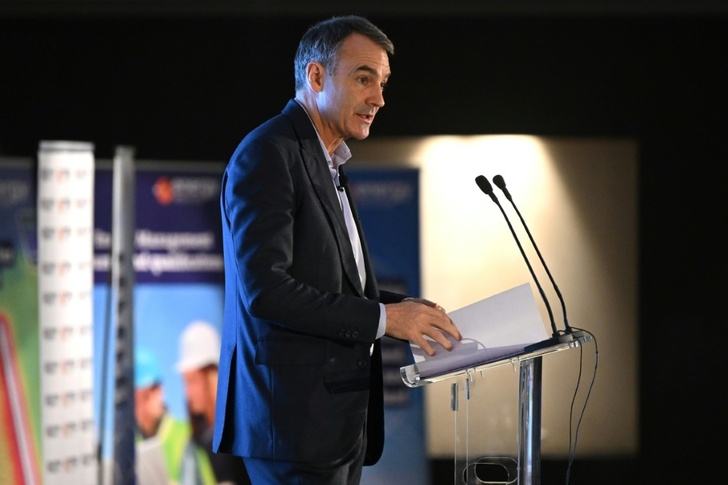British energy giant BP reported Tuesday a net profit of $8.2 billion for the first quarter, recovering from a record loss a year earlier as it ended operations in Russia after the Ukraine invasion.
The company had posted for the first three months of 2022 its biggest quarterly loss ever, at $20.4 billion after taxes, after Moscow's assault on Ukraine and subsequent Western sanctions forced its exit from Russian business.
It resulted in a pre-tax charge of $25.5 billion from abandoning its 19.75 percent stake in energy group Rosneft, ending more than three decades of BP's investment in Russia.
That wiped out the positive effect of surging energy prices that were driven by tighter supplies following international efforts to isolate Russia, a major oil and gas producer.
BP chief executive Bernard Looney called this year's first-quarter performance "strong" as the group focuses "on safe and reliable operations".
The company added that it would return $1.75 billion to shareholders.
BP also revealed that underlying profit dropped by one fifth to $5 billion, reflecting lower energy prices compared with one year earlier.
Following the results, shares in BP were down 4.7 percent at 509 pence on London's benchmark FTSE 100 index, which was up slightly overall.
Michael Hewson, chief market analyst at CMC Markets, said a "cautious outlook appears to be weighing on the shares".
BP "expects oil and gas production to be lower due to seasonal maintenance, as well as a squeeze on margins, especially in refining", he noted.
- Activist anger -
The earnings update also sparked strong reactions from activists, unhappy at BP's huge profits as consumers continue to face a cost-of-living crisis, largely owing to soaring energy bills caused by the Ukraine invasion.
"The energy crisis has shone a spotlight on the huge gulf between the winners and losers of our fossil fuel-based economy, with oil giants like BP laughing all the way to the bank," said Jonathan Noronha-Gant, senior campaigner at Global Witness.
The organisation said the bumper earnings came "amid fuel poverty and betrayal of green commitments".
Major oil and gas firms are seeking to pivot toward cleaner energy and away from fossil fuels, but BP had to face down last week a shareholder revolt over its decision to slow its energy transition.
The company's plans have sparked deep scepticism from environmental groups that accuse it of greenwashing and doing too little, too late -- while profiteering from soaring energy prices.
"BP's profits are still surging -- and we're the ones picking up the tab," Charlie Kronick, senior climate advisor at Greenpeace UK, said following Tuesday's results.
"It's time for the (UK) government to step in and force BP -- and the rest of the oil industry -- to start paying for the damage they're causing to the climate and use the money to address the devastating climate impacts already being experienced around the world," he said.
BP said in February that it expected to boost its profits between now and 2030 by investing more in both renewable energy and traditional hydrocarbons.
The company said however that it still had a target of net-zero emissions by 2050.
burs-bcp/js
© Agence France-Presse
Your content is great. However, if any of the content contained herein violates any rights of yours, including those of copyright, please contact us immediately by e-mail at media[@]kissrpr.com.
Source: Story.KISSPR.com

